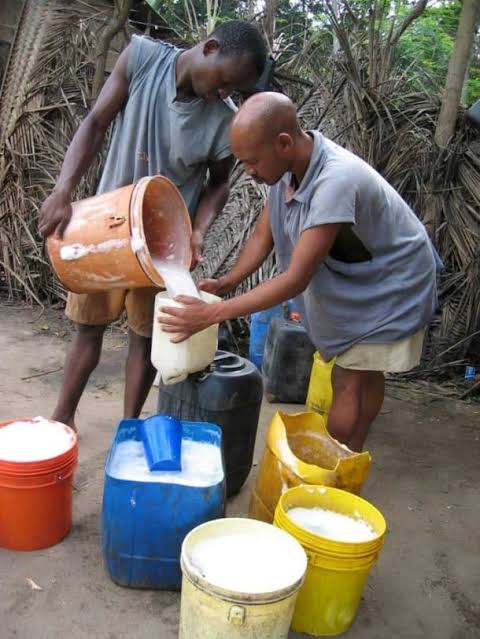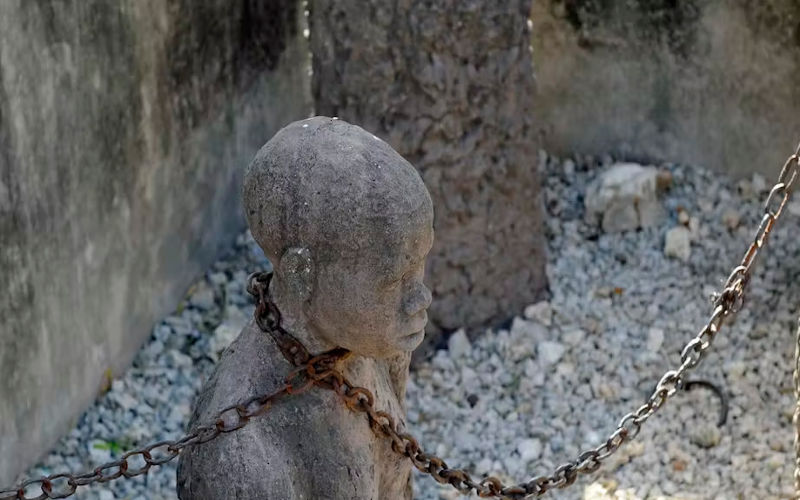Kilifi residents oppose crackdown on Mnazi brew

They assert that Mnazi is extracted naturally from coconut trees without any additives and advocate for its removal from the list of prohibited beverages.
Kilifi County residents are opposing the ongoing enforcement actions targeting Mnazi, a traditional palm wine brew, arguing that it is a natural and culturally significant beverage, not illegal alcohol.
They assert that Mnazi is extracted naturally from coconut trees without any additives and advocate for its removal from the list of prohibited beverages.
More To Read
- Fears of new cult deaths in Kilifi as court allows DCI to dig up Chakama Ranch's suspected mass graves
- Free spine care camp transforms lives in Watamu as over 4,000 treated in one week
- Court detains 11 suspects in Malindi over suspected Shakahola forest cult activities
- Poverty and hunger in Kilifi derailing education in Ganze, MP Kenneth Tungule warns
- Kilifi County urges striking nurses to resume duty, cites ongoing dialogue
- Kilifi leaders urge fast resolution of IEBC deadlock, slam delays in Magarini by-election
President William Ruto, while chairing a cabinet meeting, emphasized the severity of alcohol and substance abuse as a major threat to society's well-being. He announced the government's commitment to implementing measures to combat illegal brews and narcotics, aiming to safeguard future generations and foster a healthy environment.
“The Cabinet’s endorsement of the measures to curb illegal brews and narcotic drugs will ensure that we save a generation and bring up our children in a healthy and safe environment. We agreed on a raft of measures to eliminate the alcohol and drugs menace,” he said in a post on X.
 Kilifi Assembly Speaker Teddy Mwambire.
Kilifi Assembly Speaker Teddy Mwambire.
However, under the leadership of Kilifi Assembly Speaker Teddy Mwambire, residents highlighted the cultural and social significance of Mnazi within the Mijikenda community. They decried the labeling of Mnazi as illicit, considering it a disrespect to their heritage.
Mwambire was opposed to the harassment of Mnazi vendors and consumers by law enforcement agencies. He urged the government to engage in discussions with local leaders to understand the brew's significance in Mijikenda traditions.
"We've observed some individuals expressing concern over the consumption of palm wine by our community in the Coastal region. However, it's important to understand that palm wine is not an illegal brew; rather it holds cultural and social significance. I urge the national government, particularly Deputy President Rigathi Gachagua, to approach this issue cautiously and educate themselves about Mnazi before labeling it as an illicit substance," he stated.
In Malindi town, some palm wine vendors and consumers lamented increased harassment and extortion by law enforcement officers.
Nyevu Kazungu, a palm wine seller, emphasized that Mnazi is a traditional beverage with ancestral roots and called for support rather than criminalization.
“Mnazi is not an illegal substance but a traditional wine with roots tracing back to our ancestors. Rather than criminalizing it, they should assist us in adding value,” said Nyevu.
Francis Kahindi, a palm wine consumer, urged the national government to include palm wine in legislation, following Kilifi County's example. He advocated for the recognition of the coconut tree as a valuable cash crop, citing its incorporation by Kilifi County, including Mnazi, to support families' livelihoods.
Kahindi emphasized the absence of adverse effects from Mnazi consumption compared to other alcoholic beverages, such as chang’aa and illicit brews. He proposed advocating for legislation officially designating the coconut tree as a cash crop to capitalize on its potential for regional and national development.
Top Stories Today
Reader Comments
Trending











































